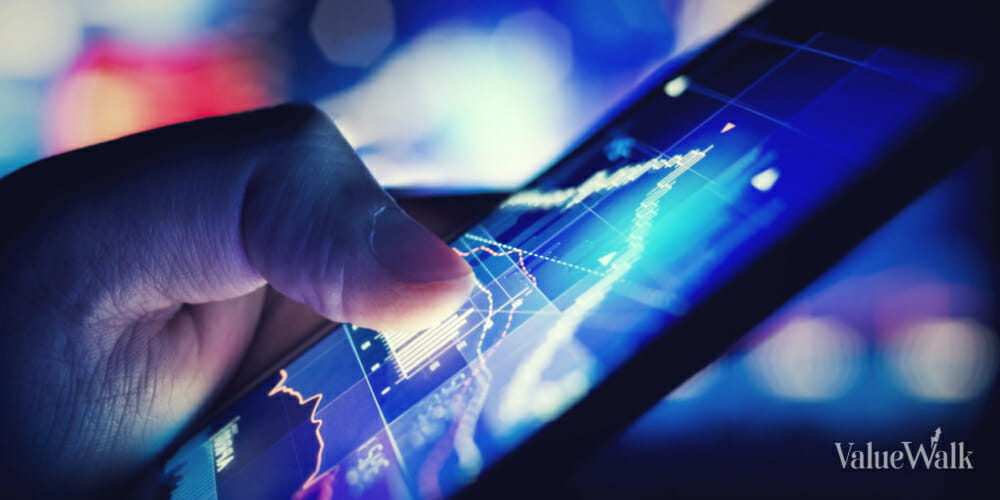GDP (Gross domestic product) is an integral part of a country’s economy because it can be used to determine how an economy is performing. It measures whether the economy is growing or contracting. But what exactly is GDP? Is there a relationship between the stock market and GDP? Keep reading to find out.
Understanding GDP
In an economy, GDP refers to the monetary measure of the value added by finished goods and services in a specific period, say a year. It can be measured based on expenditure or income.
Q3 2022 hedge fund letters, conferences and more
When calculated based on income, you count all the money spent by groups participating in that particular economy. On the other hand, when calculated based on income, you count the total amount of income paid to everyone in an economy, including all the factors of production that contribute to economic growth. Usually, these calculations are expressed as a percentage growth rate.
The Relationship Between The Stock Market And GDP
Economic growth can be measured based on the gross domestic product. Usually, GDP is driven by investments and spending, including consumer spending, business spending, government spending, and exports.
As such, the stock market is one of the sentiment indicators that can have a negative or positive impact on GDP. Typically, when the stock market is healthy, it indicates that the economy is doing well.
A country's GDP moves up and down based on expenditure. Similarly, the stock market rises and declines based on demand. The more the demand for stocks, the higher their prices and vice versa.
In most cases, a country's GDP tends to fall when there is a low expenditure in the economy. This shows that the stock market and a country's GDP go hand in hand. Therefore, it's important to understand GDP if you want to track the stock market in real time.
However, this does not mean GDP measures the stock market. It is only used to measure net exports, personal consumption, government spending, and business investment. Therefore, it's important to note that neither negative nor positive GDP affects the stock market's performance.
How The Stock Market Can Affect GDP
Equities usually affect the gross domestic product because they can influence consumer confidence and financial conditions during bull markets when stock prices are rising. In a bull market, people become optimistic about various stocks and the economy in general.
As such, companies may issue new shares to raise capital for expanding operations and hiring new workers, which can boost the GDP. That means companies can easily issue new shares when stocks are rising because there is demand for equities.
Moreover, a rise in stock prices translates to more investors and consumers acquiring more wealth and becoming optimistic about the stock market's future. As stated earlier, increased spending leads to the growth of a country's GDP.
Conversely, during bear markets, when the falling stock market is falling, there tends to be a negative effect on sentiment. Usually, investors and consumers start pulling back from spending in fear of a recession.
This can lead to increased unemployment due to uncertainties about the future and companies shutting down. Such scenarios usually lead to a decline in business and consumer confidence which translates to fewer investments in the stock market.
What Happens When There Is A Negative GDP Growth?
When there is a rise in GDP, it means people are working more and getting richer. Therefore, as a country's GDP rises, people tend to spend more, more jobs are created, workers' wages rise, and more tax is paid.
That means if a country's GDP is shrinking, there could be a recession. During a recession, there is usually a decline in economic activity, which could lead to workers' wages being reduced or even people losing jobs.
This can lead to interest rates dropping since the Central Bank could cut rates to sustain the economy. It could also lead to a decline in consumer spending, economic output, and employment.
Usually, economic experts determine there is a recession if an economy experiences two consecutive quarters of negative GDP growth.
How To Hedge Against Negative GDP
It's important to act cautiously in a recessionary environment and pick up high-quality defensive stocks to protect your investment portfolio. These stocks are usually less volatile and sensitive to economic downturns. The best part is that they give decent dividends in most cases.
Here are some recession-resistant stocks you can invest in to navigate challenging market conditions:
-
Consumer Staples
In most cases, goods such as food, beverages, and hygiene products are necessary despite economic conditions. They are known as consumer staples and help businesses generate steady income during recessions. Usually, stocks from companies producing consumer staples products outperform cyclical stocks during weak economies.
-
Utilities
Utility stocks also do well during recession periods. Excellent examples of utilities include water, electric utilities, gas, water transportation services, and water treatment service providers. Companies offering these services tend to survive during recessions because people still need them despite slow economic growth.
-
Beauty Products
Despite economic conditions, people will still spend on beauty products and cosmetics. This includes lipstick offering non-cyclical stocks that thrive in weak economies.
-
Apartment REITs ( Real Estate Investment Trusts)
REIT companies own and operate real estates that produce income. Similarly, no matter the economic conditions, these investments will always generate income since people need shelter. However, it's worth noting that office building REITs may not be suitable investments to shield yourself from recession since people tend to default on their leases when there is slow economic growth.
Final Word
As seen above, the stock market can impact a country's GDP, which means it can be used as a sentiment indicator of a country's economic growth. Therefore, it's essential to protect yourself from falling GDP growth by investing in defensive stocks.













